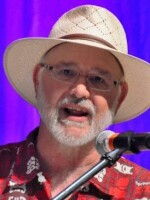Missouri State University Astronomy professor Mike Reed, likens his and his students research into vibrations of stars, to listening to a full orchestra play one long note, and picking out the sounds of individual instruments.
Mike Reed says The Kepler Space Telescope, launched in 2009, makes that research much easier, and more successful. “Kepler is a huge innovation in that unlike the Hubble Telescope , which orbits the Earth every 90 minutes, letting the Sun, Moon and Earth get in its way, Kepler is far enough away so that the Earth is but a tiny, tiny dot in that telescope. That allows it to look at one spot for virtually as long as the telescope can last. Kepler is now in an extended mission which should continue until sometime in 2018.”

Mike Reed says Kepler data is downloaded to a public archive, and is available to anyone who wants it, however: “We do have to propose for our targets, what Kepler looks at, and we apply for our targets. It’s a competitive proposal, and when we win targets, it observes those and downloads the data to the public archive, where we get it.”
One of the things we’re doing, Reed says, “Is trying to be on the cutting edge of technology, using Kepler of course, to study the vibrations of stars, and doing seismology. Just like studying earthquakes, we study vibrations within stars, to determine what their structures are.”
According to Reed, the star’s vibration is seen by Kepler as successions of light variations, which can be recorded as sound waves which can be sped up on a time scale for placement in an audio file. “Every star gives us something new. When MSU students this data and they’re finding new things, we’ll look at the vibrations together and they’ll say, What do You Think This Means? We have to piece together that puzzle, and that’s very exciting.”
Mike Reed and his students analyze Kepler Space Telescope data inside MSU’s Astronomy Lab, located in Kemper Hall, room200.









